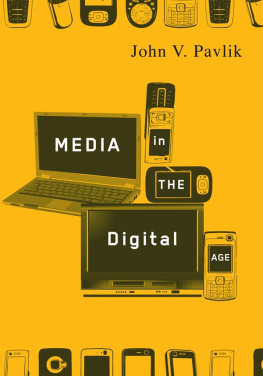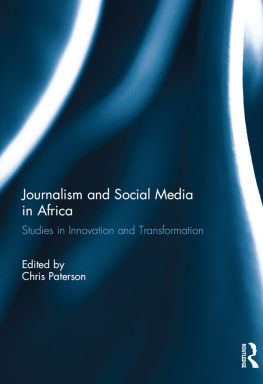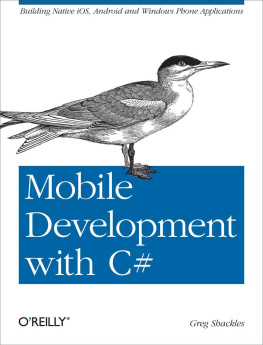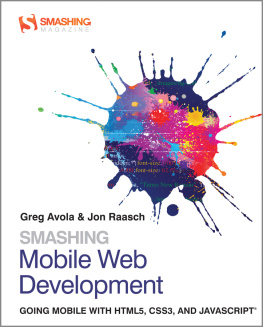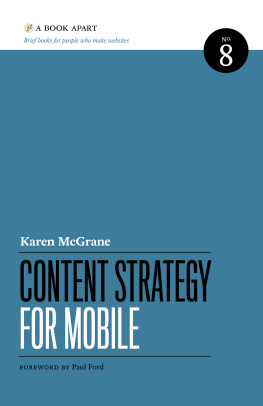Mobile Disruptions in the Middle East
Mobile Disruptions in the Middle East identifies trends in mobile media use in Qatar and the United Arab Emirates and, more broadly, explores their impact on the nature of digital journalism. Mobility has long been an important aspect of life in the Middle East; therefore a study of this region presents a unique opportunity to examine the role of mobile media and its future directions.
Basing its analysis on original research, including multiyear surveys and case studies, the book reveals patterns of audience engagement with mobile media in the Gulf area, with particular emphasis on online journalism. The research also illustrates how and to what extent media organizations are developing and delivering content uniquely designed for mobile media and consumption. Drawing on these findings, the authors look at possible developments in mobile media content strategies, including those for news content, as wearable and other emerging media forms enter the marketplace.
Mobile Disruptions in the Middle East provides an important insight into a region that is both globally active and mobile-first, yet whose use of digital media is historically under-researched. As a result, the book helps to advance understanding of consumer preference for content types on mobile media, especially in relation to the transformation of journalism.
John V. Pavlik is Professor in the Department of Journalism and Media Studies at the School of Communication and Information, Rutgers, the State University of New Jersey, USA.
Everette E. Dennis is Dean and CEO of Northwestern University in Qatar and Professor in Northwesterns Medill School, USA.
Rachel Davis Mersey is Associate Professor at the Medill School of Journalism, Media, Integrated Marketing Communications and Faculty Fellow at the Institute for Policy Research at Northwestern University, USA.
Justin Gengler is Assistant Research Professor at the Social and Economic Survey Research Institute (SESRI) at Qatar University.
Disruptions: Studies in Digital Journalism
Series editor: Bob Franklin
Disruptions refers to the radical changes provoked by the affordances of digital technologies that occur at a pace and on a scale that disrupts settled understandings and traditional ways of creating value, interacting and communicating both socially and professionally. The consequences for digital journalism involve far reaching changes to business models, professional practices, roles, ethics, products and even challenges to the accepted definitions and understandings of journalism. For Digital Journalism Studies, the field of academic inquiry which explores and examines digital journalism, disruption results in paradigmatic and tectonic shifts in scholarly concerns. It prompts reconsideration of research methods, theoretical analyses and responses (oppositional and consensual) to such changes, which have been described as being akin to a moment of mind blowing uncertainty.
Routledges new book series, Disruptions: Studies in Digital Journalism , seeks to capture, examine and analyse these moments of exciting and explosive professional and scholarly innovation which characterize developments in the day-to-day practice of journalism in an age of digital media, and which are articulated in the newly emerging academic discipline of Digital Journalism Studies.
Responsible Drone Journalism
Astrid Gynnild and Turo Uskali
Mobile Disruptions in the Middle East
Lessons from Qatar and the Arabian Gulf Region in mobile media content innovation
John V. Pavlik, Everette E. Dennis, Rachel Davis Mersey, and Justin Gengler
For a full list of titles in this series, please visit the Routledge website: www.routledge.com/Disruptions/book-series/DISRUPTDIGJOUR
First published 2018
by Routledge
2 Park Square, Milton Park, Abingdon, Oxon OX14 4RN
and by Routledge
711 Third Avenue, New York, NY 10017
Routledge is an imprint of the Taylor & Francis Group, an informa business
2018 John V. Pavlik, Everette E. Dennis, Rachel Davis Mersey and Justin Gengler
The right of John V. Pavlik, Everette E. Dennis, Rachel Davis Mersey and Justin Gengler to be identified as the authors of this work has been asserted by them in accordance with sections 77 and 78 of the Copyright, Designs and Patents Act 1988.
All rights reserved. No part of this book may be reprinted or reproduced or utilised in any form or by any electronic, mechanical, or other means, now known or hereafter invented, including photocopying and recording, or in any information storage or retrieval system, without permission in writing from the publishers.
Trademark notice: Product or corporate names may be trademarks or registered trademarks, and are used only for identification and explanation without intent to infringe.
Library of Congress Cataloging-in-Publication Data
A catalog record for this book has been requested
ISBN: 978-1-138-05005-1 (hbk)
ISBN: 978-1-315-16911-8 (ebk)
Typeset in Times New Roman
by Apex CoVantage, LLC
1
Mobility, media and Qatar
Introduction
Mobility has long been an important aspect of life in the Middle East and in the Arab Gulf in particular. Therefore the region presents a unique opportunity to examine the role of mobile media, which we do in Qatar and the United Arab Emirates (UAE) specifically and explore deeply in this book.
The main themes and objectives are threefold. First, we examine audience engagement with mobile media, including broad areas such as Internet use to more specific content such as journalism. Doing such work in an area that has been historically underresearched by comparison to the West, we are able to provide insight on a region that is both globally active and mobile-first. Penetration of smartphones in Qatar and the UAE, for example, outpace rates in the United States. In addition, Qatar, the UAE and the rest of the Gulf states are vitally important places of study in regard to mobile media use because the regions tradition of communication and mobility frame the contemporary age of mobile media.
Second, complementary to our analysis of audience engagement with mobile media content, including news, is a focus on how media organizations adapt to and respond to mobile media in particular, how and to what extent media are operating in Qatar and the Gulf in developing and delivering content uniquely designed for mobile media and consumption.
Third, from the basis of our study, we explore possible future directions in mobile media content strategies, including news, as wearable and other emerging media forms enter the marketplace. While the media industry has begun to experiment with content for emerging technologies, we recognize the need for evidence-based reasoning for further content development.
This book offers a perspective on the development of content for mobile media. We draw on original research evidence collected in Qatar and the Gulf region. The data this book is based on are part of a three-year study funded by the Qatar National Research Fund (Pavlik, Dennis, Mersey and Gengler, 2013). This project represents one of the first systematic large-scale studies of mobile media innovation, especially in the context of content design. As such, it helps to advance understanding of consumer preference for content types on mobile media, especially the transformation of journalism in the region.


